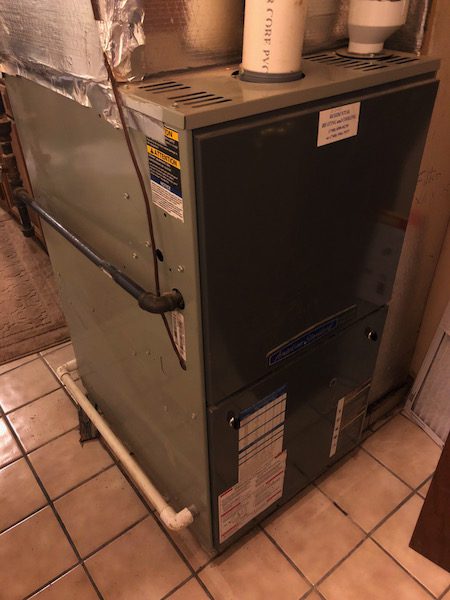Replacing Your Heating System? Consider These Important Factors

If you live in a home long enough, face it, at some point you will need to replace your central heating system. While a gas furnace, for example, may last 20 years or more, if you’re expecting efficient and effective operation, you’ll probably need to think about replacement before that. So knowing that your heating system will need to be replaced at some point, it pays to be prepared – to consider your options before circumstances force you into making a quick decision with inadequate research.
What to Consider When Upgrading a Heating System
Stand pat or try something new? Your first decision when considering a heating system upgrade is whether to stick with the type of system you’re replacing. For example, if your home is heated by a natural gas furnace, would you like to switch to an electric air-source heat pump? Or electric baseboards? Radiant heating?
If a gas furnace currently heats your home, it’s important to consider the fact that your home is already outfitted to use this type of system, with gas-lines, exhaust vents and other infrastructure specific to a fuel-burning system. The easiest path is to remain with the type of heating system that you already have. On the other hand, it’s easier to switch from a combustion furnace to a heat pump, than making the opposite switch, if the latter means having to retrofit your home with gas-lines, exhaust vents, flue, chimney, etc., to handle a gas furnace. Those considerations, however, might be worthwhile if you already have decided that the type of heat you get from a heat pump isn’t for you. Some homeowners find that during especially cold weather, a heat pump doesn’t provide sufficiently comfortable heating, and that the auxiliary heating that kicks in during these times to address that issue can be quite expensive.
Of course, a heat pump does offer the valuable advantage of providing both heating and cooling. If you already have an efficient and effective air conditioner, however, this advantage really doesn’t apply.
Another factor to consider that adds an advantage to heating with a gas furnace is that with current prices for natural gas, heating with this fuel type is relatively cheap, and that situation isn’t forecast to change in the foreseeable future.
Climate is a factor, however, that might tilt the weight of your decision in favor of an electric heat pump. In areas with relatively mild winters and hot summers, the cost of cooling is a bigger concern than the cost of heating. Having a two-way solution – for both cooling and heating – can be an attractive option that saves you money in the long run.
Energy Efficiency Pays Dividends
When shopping for a new heating system, you’ll also need to decide what level of energy efficiency you would like with your new equipment. Energy efficiency with heating equipment refers to how much heat you can expect to get from the energy that is burned or consumed in creating that heat. The higher the efficiency, the lower your heating bills. However, you’ll pay more upfront for a high-efficiency heating system.
This is another case where climate may influence your decision. If you live somewhere with mild winters and lower month-to-month heating costs, choosing a high-efficiency heating system isn’t as important as it might be in an area with colder winters. When it comes to furnaces, heat pumps and other heating systems, the colder and longer the heating season, the more sense it makes to purchase the highest-efficiency equipment that you can afford.
What Capacity Heating System Do You Need?
Another essential factor when selecting a new heating system for your home is size or capacity. While you might assume “bigger is always better” when it comes to a new furnace or heat pump, that’s not the case. Over-sizing an HVAC system – whether it’s meant for heating or cooling – can result in just as many negative issues as under-sizing a system. A heating system that’s too large will short-cycle, stopping and starting frequently, which wastes energy, stresses equipment, and may provide uneven heating in your home. Your trusted Cincinnati HVAC contractor should perform a heating load calculation on your home, taking into account its size and layout as well as a variety of other factors, before recommending a particular capacity for your new system.
When all is said and done, the most important decision you’ll make when upgrading a heating system for hour home will be which local HVAC contractor to work with. It always makes sense to go with a well-respected company with long ties in the community.
